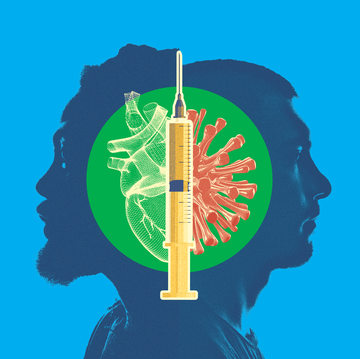Even if your cholesterol numbers look great and you’re at a healthy weight, you still might be at risk of heart disease. That’s because depression poses just as much of a risk to your ticker as obesity and high cholesterol levels do, according to a new study published in the journal Atherosclerosis.
German researchers analyzed data from nearly 3,500 men between the ages of 45 and 74 over a 10-year period, focusing on risk factors for heart disease that included depression, high cholesterol levels, obesity, high blood pressure, smoking, and diabetes.
It turns out that mental health is just as important as physical health. Depression accounted for about 15 percent of cardiovascular deaths, putting it squarely in the middle of that list of other risk factors, on par with high cholesterol. (Here’s why men don’t talk about depression.)
Obesity and diabetes each accounted for below 10 percent, while smoking came in around 17 percent. High blood pressure was the biggest danger at 30 percent.
Although the study shows a correlation, rather than causation—meaning they can’t say for sure whether depression is actually responsible for heart issues—the study’s lead author, Karl-Heinz Ladwig, said in a press release that there is little doubt that depression is a risk factor for cardiovascular diseases.
According to the American Heart Association (AHA), those who are depressed may make poorer health choices in terms of nutrition and exercise, but there are also physiological dangers. The AHA notes that depression can cause higher levels of cortisol, a hormone related to stress, which has been shown to negatively impact the cardiovascular system.
For now, the issue at hand is to tease out the relationship between multiple risk factors and actual heart risk, Ladwig adds. For instance, to analyze how much more a guy’s heart disease risk spikes if he has depression and also smokes or has high blood pressure.
While that’s being studied, those who have one of the six major risk factors identified by the study should consider speaking with their doctor about heart disease, in order to pursue any preventive strategies that could be helpful for long-term health.













